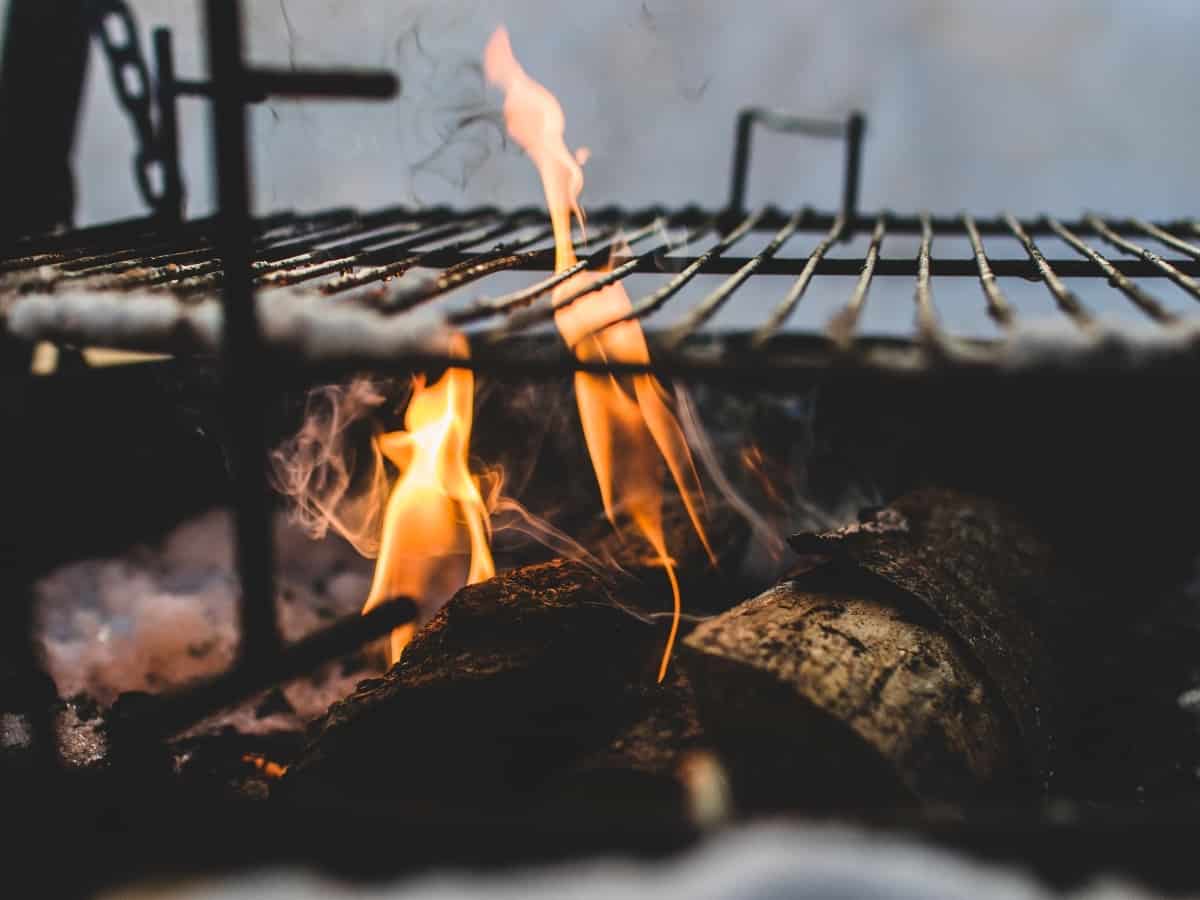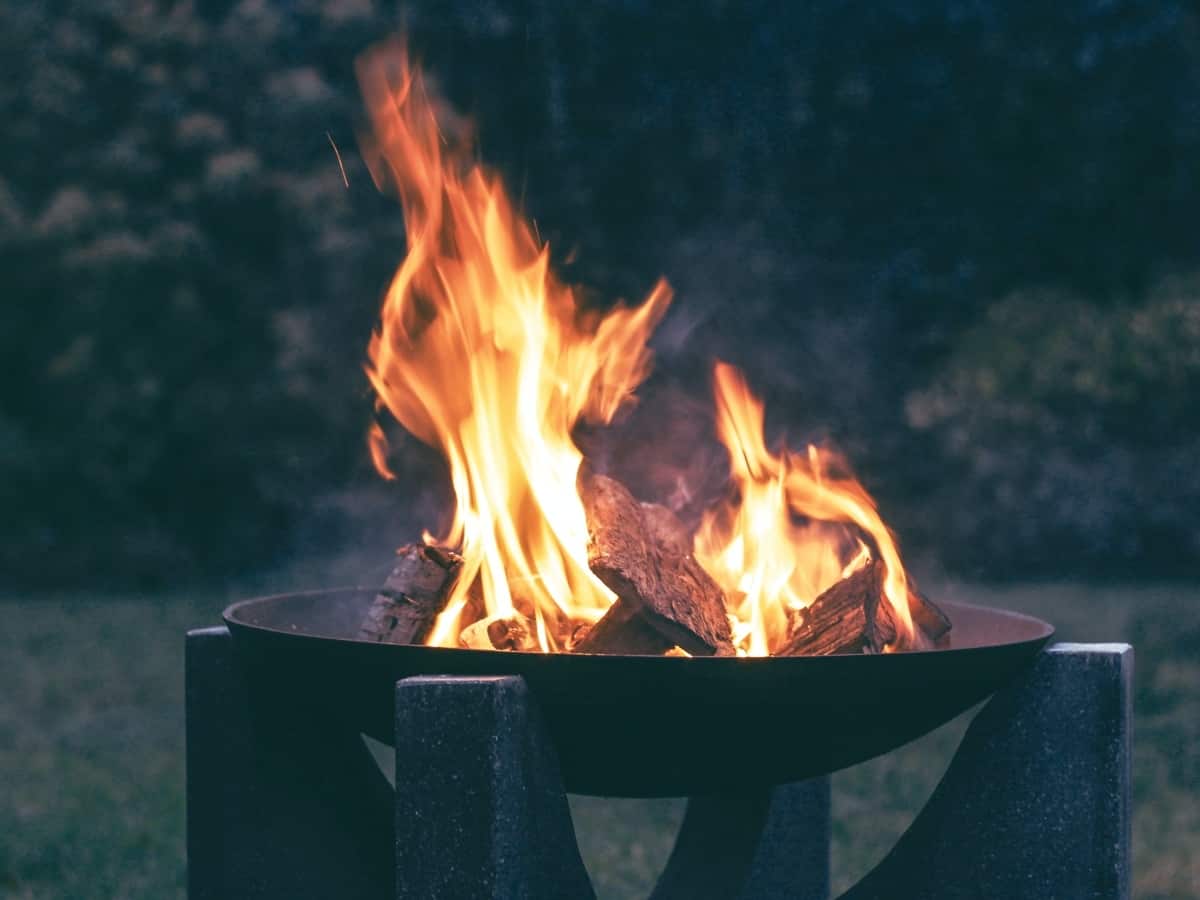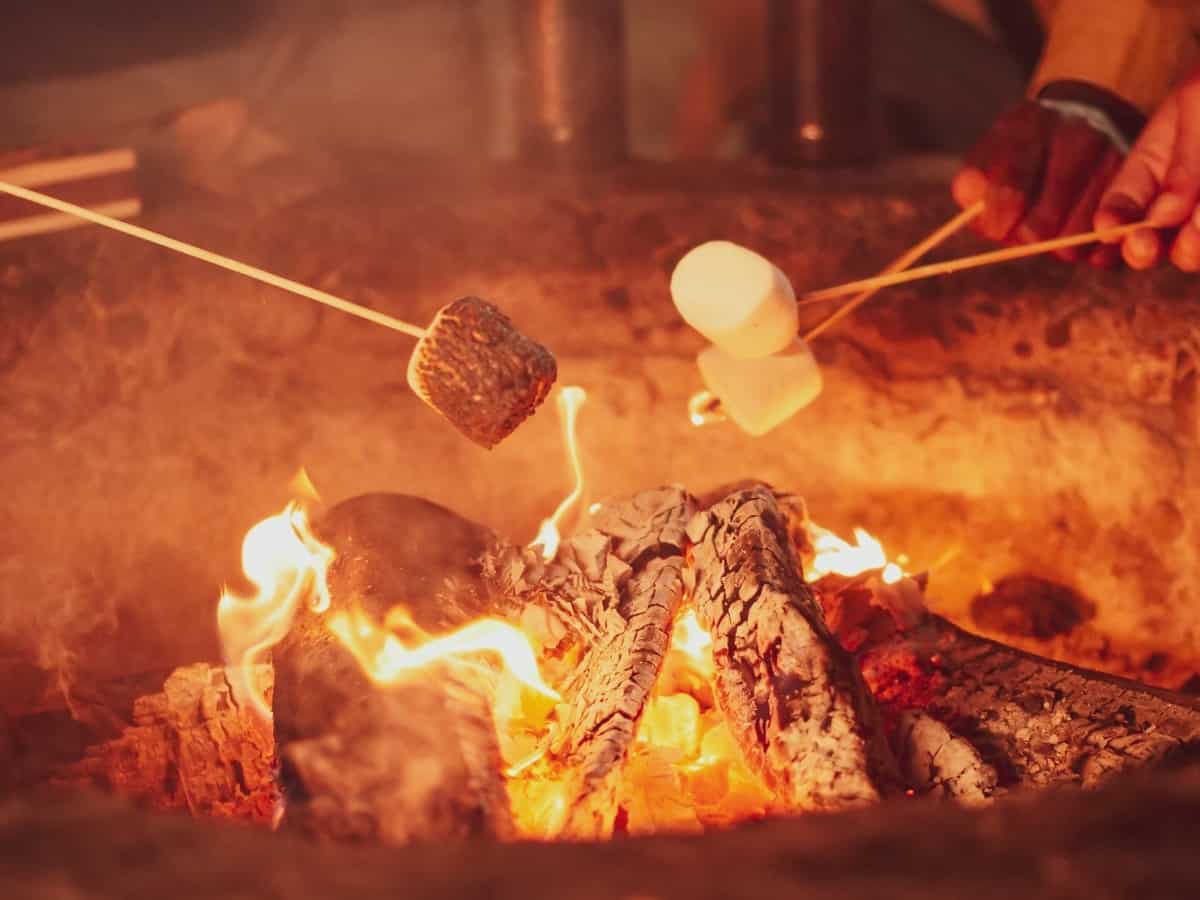Backyard fire pit safety is important no matter the season. As we move into the autumn months, we’re going to start seeing more and more cool evenings. They’re the kind of times that would be perfect to spend outside by the fire pit, chatting, reading, or just generally hanging out. But hanging out around any kind of open flame means the potential for accidents, and the need for good backyard fire pit safety.
While maintaining your fire pit, and exercising proper safety when using it, is certainly important, backyard fire pit safety is more than just physical. But before we jump into all that, let’s cover some basics.
What is a Fire Pit?
A fire pit can be as simple as a hole dug into the ground and surrounded with stones. They can also be elaborate structures made out of metal, glass, and/or brick. Regardless of the specifics, the main feature of a fire pit is its circular rimmed structure. This is designed to contain a fire and prevent it from spreading. Fire pits function as an aesthetic backyard gathering place, providing warmth and light during cool evenings and summer nights.
The average cost of building a fire pit runs at about $700, with low-end estimates begin around 300 and the high-end being somewhere in the neighborhood of $1,400. The cost will also vary a bit based on whether you’re installing a wood-burning or gas-fired fire pit.

Common Backyard Fire Pit Safety Measures
It’s important to use common sense and basic fire safety when operating or otherwise around a fire pit. Accidents happen every day and assuming it won’t happen to you is a great way to be caught off-guard. While it isn’t necessary to be paranoid or overly anxious, any sort of fire should be treated with the proper respect.
Here are some general safety rules and guidelines when it comes to operating a backyard fire pit.
- Place the fire pit at least 10 feet away from your house
- Keep children and pets at least three feet back from the fire at all times
- Avoid wearing loose-fitting clothing
- Avoid wearing flammable clothing such as nylon
- Keep an extinguisher, bucket of water, or garden hose nearby
- Do not use soft woods like cedar and pine as these can pop and throw sparks from the pit
Do You Need Permission From Your HOA or Your City to Have a Fire Pit?
As a general rule, a simple basic fire pit does not require any kind of planning permission from a local authority. The exceptions often come in when the fire pit is part of, say, a larger makeover of the garden and backyard. If you’re planning any kind of major renovations, you will likely need to get permission from your HOA. You may also need permission from your city, depending on the nature and scale of the project.
That said, it always pays to be sure before proceeding with a project. If you have any doubts about your permissions, check in with your personal Homeowners Association. They’ll inform you of any rules they enforce regarding fire pits.
The Difference Between Wood and Gas Fire Pits
The choice of a wood-burning or gas-fired fire pit will really come down to your needs, preferences, and budget. Wood fire pits are generally cheaper to install, and tend to provide a better overall experience. There are some significant downsides, however. Wood-burning fire pits are not clean-burning and require a separate wood-storage area. It’s also fairly easy to start uncontrolled fires with them, and they can be difficult to light.
Gas-powered fire pits on the other hand are clean-burning and easy to light. They can also run continuously, and present fewer fire hazards than their wood-burning counterparts. On the downside, the installation time is longer for gas-powered fire pits, they require a large fuel tank, and they’re just more expensive overall.
Both wood and gas-powered fire pits provide the same basic warmth and light however. This means your decision will likely be based more on the cost to install and maintain them. You may also want to consider how comfortable you are with the idea of using natural gas.

Do You Have to Have a Policy For a Backyard Fire Pit on Your Home Insurance?
Industry experts are usually of the opinion that fire pits are already covered by a couple different sections of your homeowner’s policy. This means they do not require additional, specific coverage. If you prefer to have a specific policy however, talk with your insurance company. They will help make sure you feel comfortable with the type and extent of coverage you have.
Portable fire pits, by and large, are considered to be personal possessions. This means that damage caused by them is covered by the personal property coverage in your homeowner’s insurance. Similarly, a permanent fire pit is considered to be a separate, unattached structure. These structures are covered under a different portion of the policy.
Do You Need to Disclose Your Fire Pit to Your Home Insurance?
While it isn’t directly required, it’s never a bad idea to disclose a fire pit to your home insurance. Choosing not to disclose it could backfire on you and leave you paying the expenses incurred in the event of an accident. The usual rule is that fire pits are covered as personal property or as an unattached structure. This isn’t a hard-and-fast rule, however. It’s always best to cover your bases and disclose your fire pit.
Are Injuries Covered Under Liability Insurance?
This may surprise you, but the short answer is usually no.
In law, you may see the term premises liability. Let’s assume that the injury happened during a normal evening spent around the fire pit. This means that no one was on your property and using your fire pit without your knowledge or permission. The injured party had the right to believe they were free of danger while on your property. That expectation legally makes their injury your fault.
This is one of the many reasons to practice good backyard fire pit safety, especially when it comes to children, pets, and guests of all stripes. Make sure you keep pets and children at least three feet from the edge of the fire pit at all times, and avoid using soft woods like cedar if you have a wood-burning fire pit. Soft wood can often pop and throw sparks which can cause injury or even start an unintentional fire outside the pit.
What if Your Fire Pit Causes Damage to Your Home?
A typical portable fire pit is considered to be a personal possession. This means any damage caused by it falls under the ‘personal property’ section of your homeowner’s insurance. Permanent fire pits may likewise be covered as an additional unattached structure. Granted, it always pays to be sure. Always check with your insurance company if you have questions about your policy.
Any damage to your home is likely to be covered under your standard homeowner’s insurance. However, it never hurts to double-check these things with your insurance company. Making sure you’re clear on what is and isn’t covered is never a bad idea. Do this before installing a fire pit of your own, and you may save yourself some headaches.

What if Your Fire Pit Damages Someone Else’s Property?
The standing rule is that your homeowner’s insurance only covers your own property. If your fire pit happens to damage someone else’s property, you’ll be dealing with their insurance. You’ll also likely be expected to pay their deductible as the damage is considered your fault. All the more reason to practice backyard fire pit safety!
Fire pits make wonderful functional and aesthetic additions to homes, often without any kind of issue. However, the amount of damage they’re capable of doing is staggering, and they should never be taken lightly or treated like toys. Having top-shelf home insurance is one way to make sure you’re protected in the event of the unforeseen.



